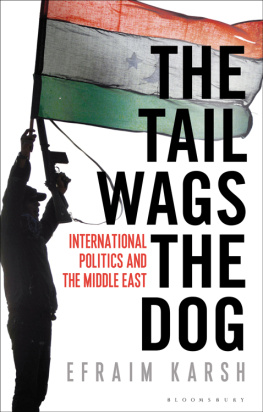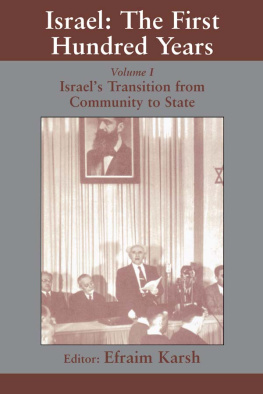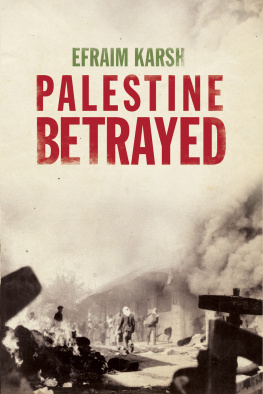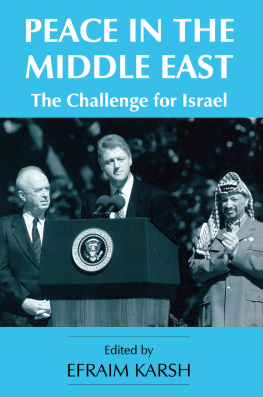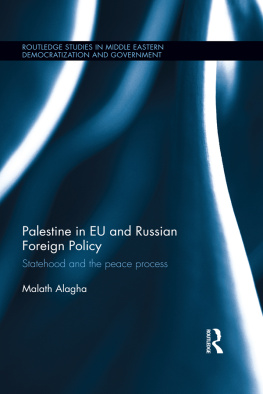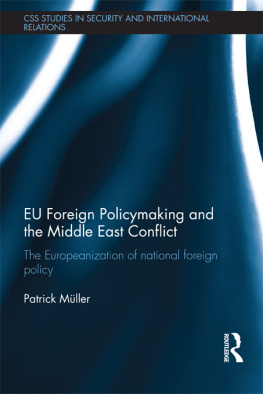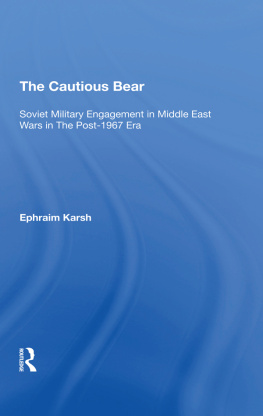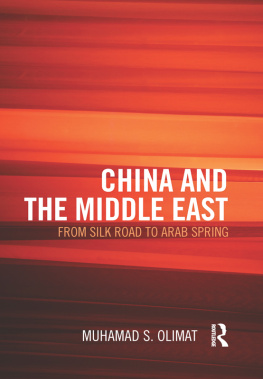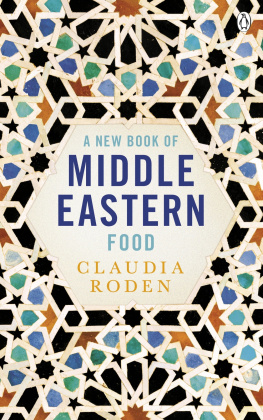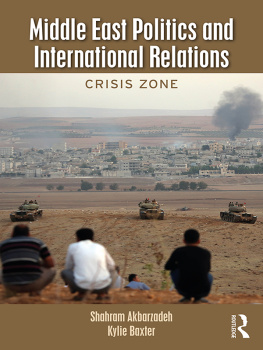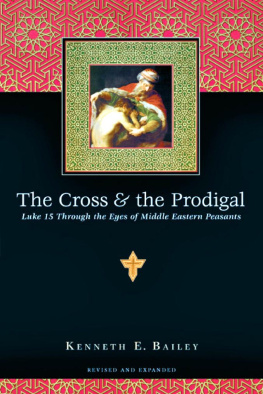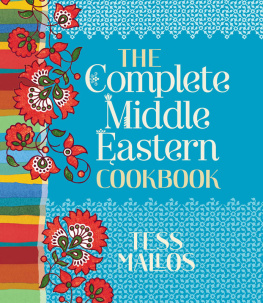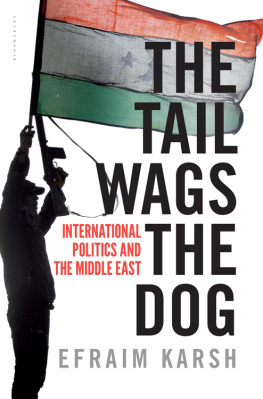
THE TAIL WAGS
THE DOG
International Politics and the Middle East
Efraim Karsh

In memory of Fred Halliday
In the morning hours of Tuesday, 22 July 2014, US Secretary of State John Kerry arrived at the presidential palace in Cairo for a meeting with Abdel Fattah Sisi. Israel and the Islamic Resistance Movement (better known by its Arabic acronym Hamas) were in the midst of their third war in five years and the US administration sought to convince the newly inaugurated president to desist from his mediation attempts and endorse a ceasefire proposal by Turkey and Qatar Hamass foremost patrons.
Engaged in a mortal fight against Egypts Muslim Brotherhood, Hamass parent organization, which he had removed from power the previous year, Sisi had no intention of helping its Gaza offspring and he lost no time indicating his view of the American initiative. Rather than spirit Kerry to his appointment, as is the common practice on such occasions, Sisi required the secretary of state and his entourage to undergo a thorough metal detector screening in full view of the world media. And while the State Department shrugged off the incident as a glitch by an overzealous employee, the Egyptian press and social media applauded it as a courageous snub of the worlds only remaining superpower (as the United States has been commonly known since the collapse of its Soviet nemesis).
However extraordinary, the image of Americas top diplomat manhandled by security guards of a client state in receipt of tens of billions in US economic and military aid was just the latest (if the most striking) of a long series of foreign policy humiliations endured by the Obama administration in the Middle East. At the end of June 2014 the White Houses plea for revocation of the prison sentencing of three Al Jazeera journalists on concocted security charges was flatly rejected by Sisi, while four months later Vice President Joe Biden was forced to publicly apologize
More significantly, when in October 2013 Washington suspended weapons supplies to the Egyptian army in retribution for its overthrow of the countrys Muslim Brotherhood regime a few months earlier, Cairo hosted the Russian foreign and defence ministers on a state visit the first of its kind since changing its orientation from East to West four decades earlier and in February 2014 then-Minister of Defence Sisi, already Egypts effective ruler, visited Moscow, where he met with President Putin and signed a large arms deal in return for the restoration of the port services enjoyed by the Russian navy until the mid-1970s. Having apparently got the message, on 10 June a humbler Barack Obama called Sisi to congratulate him on his electoral victory and to reaffirm the strategic partnership between the United States and Egypt. Three weeks later Kerry travelled to Cairo to voice strong support for the new president and to express the administrations eagerness to repair its strategic relationship with Egypt, beginning with the resumption of arms transfers. Which didnt prevent Sisi from hosting Putin for a historic visit to Cairo in February 2015, at the height of Washingtons bitterest confrontation with Moscow since the end of the Cold War.
While these incidents offer a sad testament to the freefall of Americas regional standing and prestige during the Obama years even in comparison to the George W. Bush administrations darkest moments they are by no means an exception to the overall pattern of Middle Eastern great power relations during the past two centuries. For, contrary to the common perception of regional affairs as an offshoot of global power politics, modern Middle Eastern history has been the culmination of long-existing indigenous trends, passions and patterns of behaviour; contrary to their treatment as hapless objects lacking an internal, autonomous dynamic of their own, Middle Easterners have been active and enterprising free agents doggedly pursuing their national interests and swaying the region pretty much in their desired direction, often in disregard of great-power wishes. External influences, however potent, have played a secondary role, constituting neither the primary force behind the regions political development nor the main cause of its notorious volatility.
Of course, the British Empire destroyed its Ottoman counterpart during World War I, occupied Iran together with the Soviet Union during World War II, and co-engineered a coup dtat in Tehran a few years later; while Moscow overthrew the Afghan government in December 1979, a feat repeated 22 years later by Washington, which proceeded to topple the Iraqi regime in the spring of 2003.
Yet these were all extreme exceptions that underscored the farthest limits of external interference rather than its endemic pervasiveness. None of the interventions represented a deliberate design on the region; all were grudging responses to undesirable developments that could have readily been averted by the local actors, which would in turn come to have a decisive, if not the final, say in these interventions ultimate outcomes. Just as the Soviets were squeezed out of Afghanistan after a decade of bitter fighting only to see the ascent of a worse regime than the one they had toppled, so 14 years after its overthrow by a US-led international coalition the Taliban is poised to return to power in Kabul despite the massive military, economic and political resources expended to prevent this eventuality. Likewise, not only did the US-led intervention fail to reconstitute Iraq as a modern-day stable democracy despite the expenditure of thousands of lives and over a trillion dollars, but the countrys eight-year-long occupation unleashed violent centrifugal forces, hitherto checked by Saddam Husseins brutal regime, which have brought it to the verge of disintegration. No less seriously, the Iraq intervention has boosted Tehrans regional influence and reduced Washingtons ability and readiness to contain its dogged quest for nuclear weapons the foremost threat to regional security in the coming years.
More broadly, the destruction of the Ottoman Empire, on whose ruins the contemporary Middle Eastern state system arose, was a corollary of a global conflict that saw the fall of far more powerful European empires and set in train a process of national self-determination that was to end the worldwide imperial epoch before too long. Within this larger order of things, the Ottoman Empire was not the hapless victim of secret diplomacy bent on carving up its territories but a casualty of its own catastrophic decision to join the war on the losing side. This was by far the most important decision in the history of the modern Middle East, and it was anything but inevitable. Had Istanbul stayed out of the conflict, as pleaded by the Anglo-French-Russian Triple Entente, it would have readily weathered the storm and the regions future development might well have taken a different course.
Indeed, even after the Ottoman entry into the war London was reluctant to divert the necessary resources for its defeat from the European war theatre and for months remained wedded to the Muslim empires continued existence, leaving it to a local Meccan potentate Sharif Hussein ibn Ali of the Hashemite family to push the idea of its destruction. Impressed by Husseins (false) promises to raise the Ottoman Empires Arabic-speaking subjects in revolt against their Muslim suzerain, the British accepted his main territorial demands, albeit in a highly equivocal fashion, then persuaded their French and Russian allies to endorse them in what came to be known as the May 1916 SykesPicot Agreement (named after its two main negotiators Sir Marc Sykes and Franois Georges-Picot). And while Hussein never came close to fulfilling his end of the bargain, and the SykesPicot Agreement never saw the light of day (in contravention of its lasting denigration as the source of all evil), the sharifs false pretences would have a considerable impact on the future shape of the Middle East: the emirate of Transjordan (later to be known as the Kingdom of Jordan) was established in 1921 to satisfy the ambitions of his second son Abdullah, while in the same year the modern state of Iraq was created at the instigation of Abdullahs younger brother Faisal. Hussein himself became King of the Hijaz, Islams birthplace, only to be evicted a few years later by a fellow Arabian potentiate, Abdul Aziz ibn Saud, founding father of Saudi Arabia.
Next page
